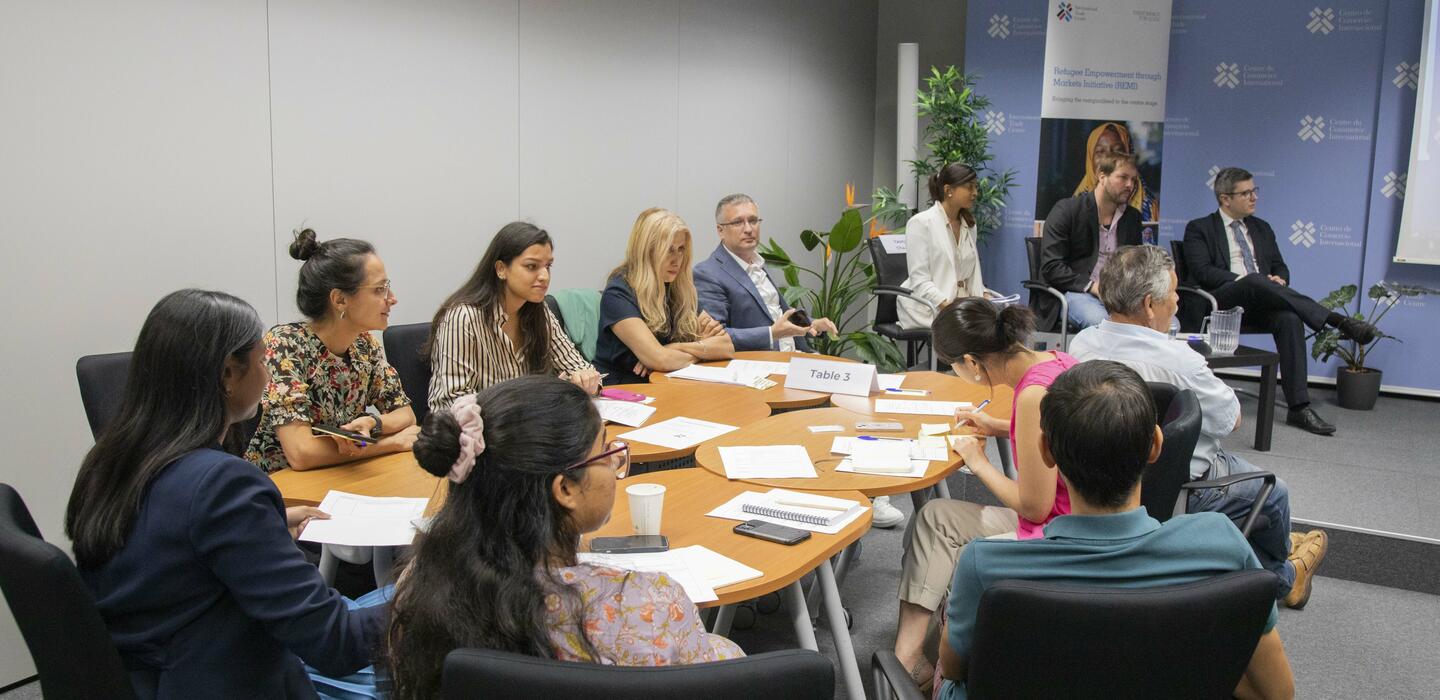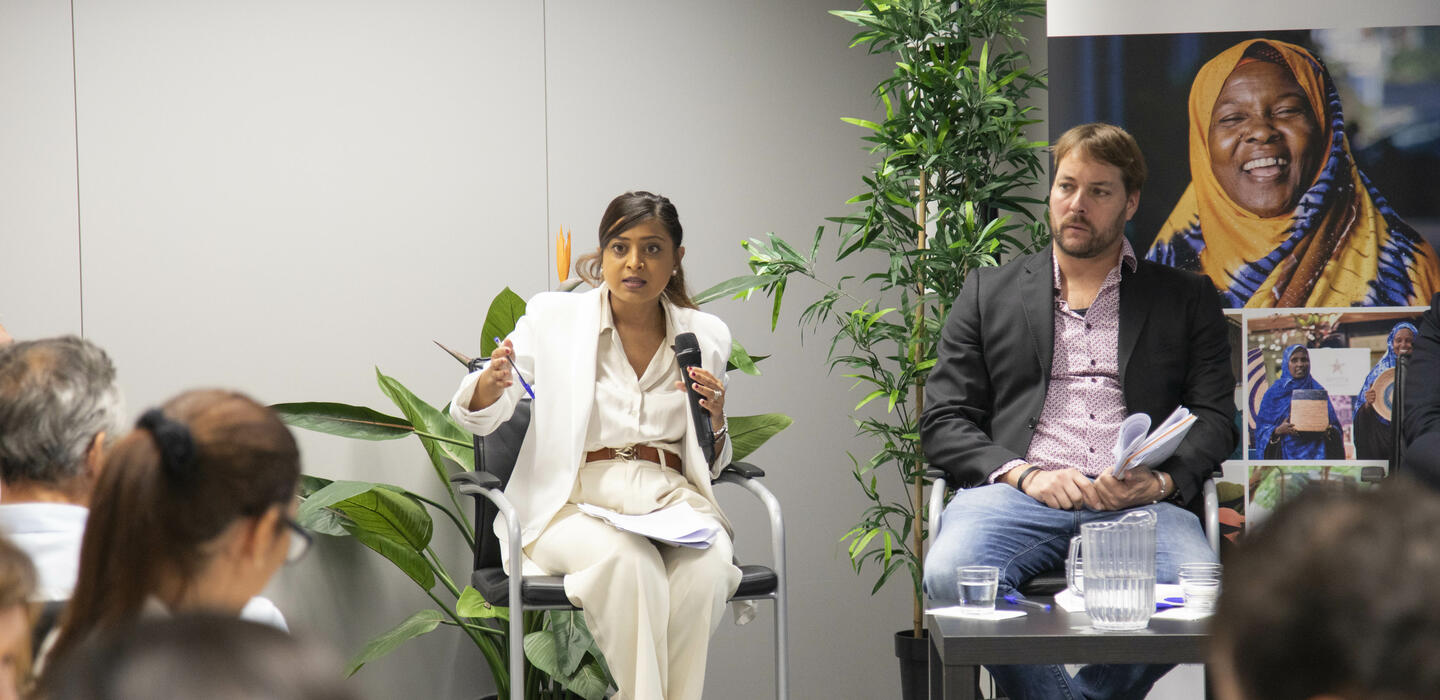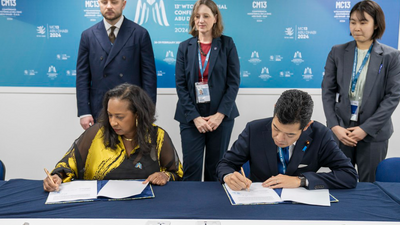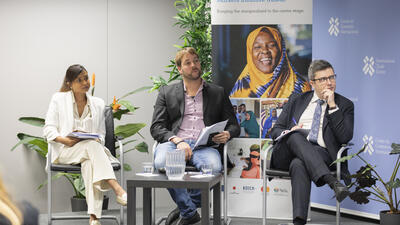
How refugees find work by selling digital services
Telework lets refugees earn a living, wherever they end up settling. To help them navigate the evolving digital services landscape, the International Trade Centre brought together experts to look at how to support refugees in finding work online.
Since Russia invaded Ukraine, five million jobs have been lost and 65% of the country’s businesses report significant disruptions. Six million people have escaped to other European countries, while another five million have fled their homes but remain in Ukraine.
Switzerland has expedited work permits for Ukrainian refugees, but only 15% were able to find jobs, leaving the majority grappling with the daunting task of rebuilding their lives.
Experts brought together by the International Trade Centre and the Centre for Trade and Economic Integration, a think-tank at the Geneva Graduate Institute, explored telework's practical potential for refugees seeking to work online.
The Ukrainian crisis: Displacement and challenges
‘Our learnings have underscored that trade and markets work to bring people together,’ said Raimund Moser, Chief of the ITC Section of Women, Youth and Vulnerable Communities. ‘But we have also seen that reach to markets is limited and sometimes impossible, as COVID has clearly demonstrated, if it's not supported with digital infrastructure. This is one of the many reasons behind our programmes focus on creating opportunities through digital skills and e-commerce.’
‘For ITC as an aid-for-trade organization, this has been about how we can leverage our knowledge and know-how on small businesses and SME development to meet the needs and create opportunities for the refugee and the countries that host them,’ he added.
Unlocking digital trade: A pragmatic approach
Amidst these challenges, a practical avenue became available: using the digital skills of displaced individuals to participate in the digital services trade. This approach sought to overcome physical barriers to job opportunities and address labour shortages in host countries.
Experts attended from international organizations, the private sector, the Swiss government, country missions, and non-governmental organizations. The aim was to showcase initiatives to make it easier for refugees to sell their digital services. Since March 2023, a series of interviews delved into the challenges faced by refugees and organizations set up to work with them in Switzerland. These insights provided a pragmatic look at the challenges faced by displaced people and the potential dividends of telework.
‘Remote work is not a panacea for all the challenges faced by refugees, but it does have tremendous potential to empower, materially support and provide greater dignity to thousands,’ said Dmitry Grouzibinski, Executive Director of Geneva Trade Platform.
‘This workshop identified real, actionable steps for (intergovernmental organizations), donors, governments, civil society and the private sector toward realising that potential - and the work of ITC demonstrates both the benefits and the feasibility of taking such ideas forward.’
The overarching goal was to proffer actionable recommendations for the future. Deliberations centered on strategies for supporting the integration of skilled refugees into digital services trade within the parameters of real-world challenges.
About the projects
Ukraine: Building economic resilience of displacement-affected communities is a Japan-funded project that responds to the emergency needs in Ukraine in the areas of livelihood and economic disruption by contributing to the economic resilience of Ukrainian communities affected by the conflict and resulting displacement. Given that a large number of the Ukrainian population is still in movement and under uncertain circumstances dictated by the crisis, the project’s resilience building activities will focus on support that can provide short-term economic relief, and that also works to generate resources and build skills that can be adapted as the context evolves.
The Refugees Empowerment through Markets Initiative (REMI) is ITC’s innovative programme offering for migration or displacement affected communities to support them to build economic resilience through trade-led, market-based solutions.


















